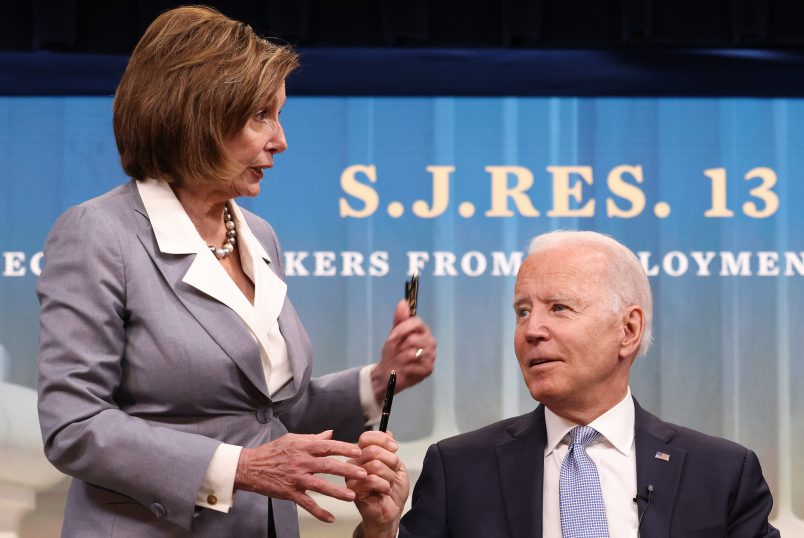Over the last four to five days, we’ve seen a fascinating and occasionally surreal set of contending storylines for what happened on Capitol Hill with the President’s infrastructure, climate and safety net agenda. In advance we saw the continued portrayal of an intra-party fight between “progressives” and “moderates” when in fact we had something closer to unanimity with a tiny but critical number of holdouts. Really it was Manchin and Sinema vs everyone else.
Over the weekend, as Pelosi and Biden finally decided to toss aside the self-imposed deadline for passing the “hard” infrastructure bill, this prog. vs mod. storyline escalated into “Biden throwing in his lot with the left,” or a “left-wing revolt.” A weekend story in the Times actually claimed that in his meeting with House Democrats Biden had said for the “first time” that the two bills were linked. Apparently we all forget that just a couple months ago there was a whole faux mini-scandal when Biden threatened to veto the hard infrastructure bill if the two weren’t passed together. For a lot of the insider pubs it’s been a story of the collapse of Biden’s agenda whereas for most Democrats it seems more like it’s starting to get back on track.
This is all a testament to how a deeply entrenched set of assumptions can have wildly distorting effects on coverage of fairly nuts and bolts factual issues.
Let’s step back and see what I think actually happened here. Because it’s certainly not the collapse of Biden’s agenda. Nor is it the left wing triumph storyline that the elite publications and actually some progressives have each, for very different reasons, latched on to.
Note what Biden told House Democrats when he met with them. He said the bills had to pass in tandem, that linkage was just “reality.” He also told House Democrats that they would have to come down significantly from the $3.5 trillion number. In one report he threw out the number $2.2 trillion. That seems like a plausible number – significantly up from Manchin’s $1.5 trillion opening bid or current offer but down from what most of the party was supporting and backing.
There’s always been a bit of a razzmatazz element to this since it’s really hard to know the significance of a $2.2 trillion number without knowing what’s in it. Which programs get dropped? Does everything get slimmed down so you get a lot of perhaps ineffective-because-underfunded programs or do you concentrate on a few?
The most relevant point, I think, is that Biden told his party they’d be coming down significantly and he seems to have been able to get them broadly to accept that. That’s a compromise.
That belies a core element of much recent reporting. There’s been a lot of talk about needing to compromise, about the progressives’ violating the political taboo of making the good the enemy of the perfect, of preferring all of nothing to a lot of something. But this has pretty clearly not been the case. Rep. Jayapal publicly and Biden and Pelosi less publicly have been asking Manchin to name his number. They’re practically begging to compromise down. What they’ve been resisting is being dictated to or surrendering all their leverage and getting an unknown reconciliation bill in which they’d be beggars rather than negotiators.






